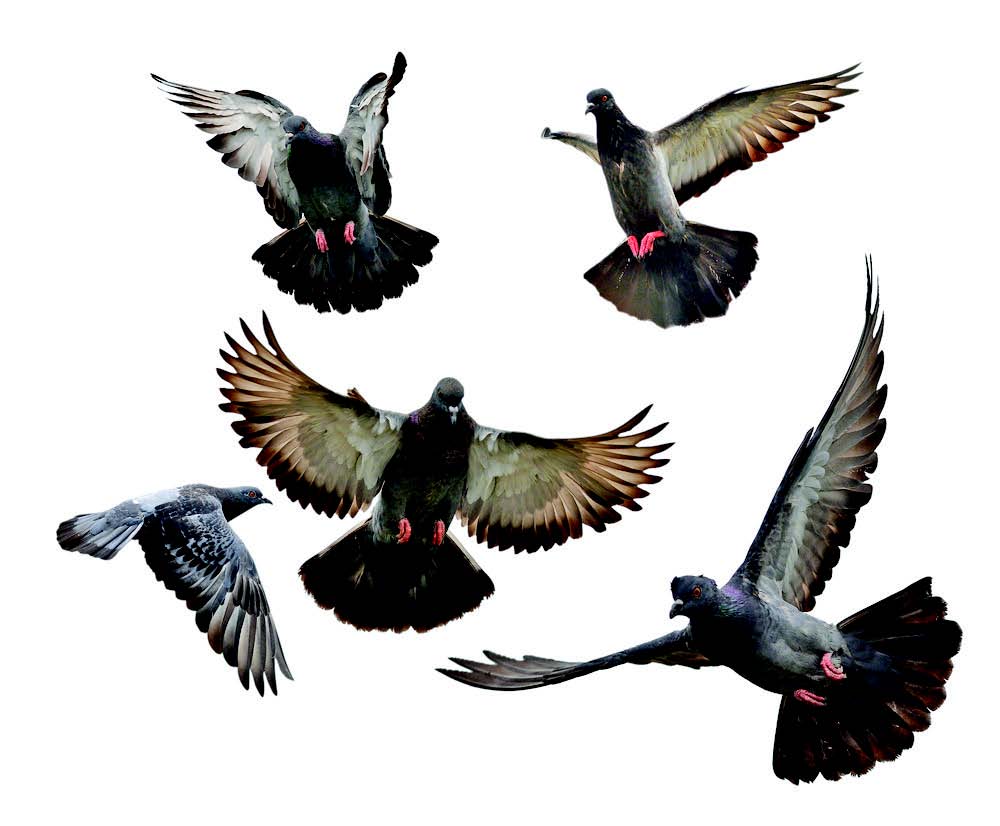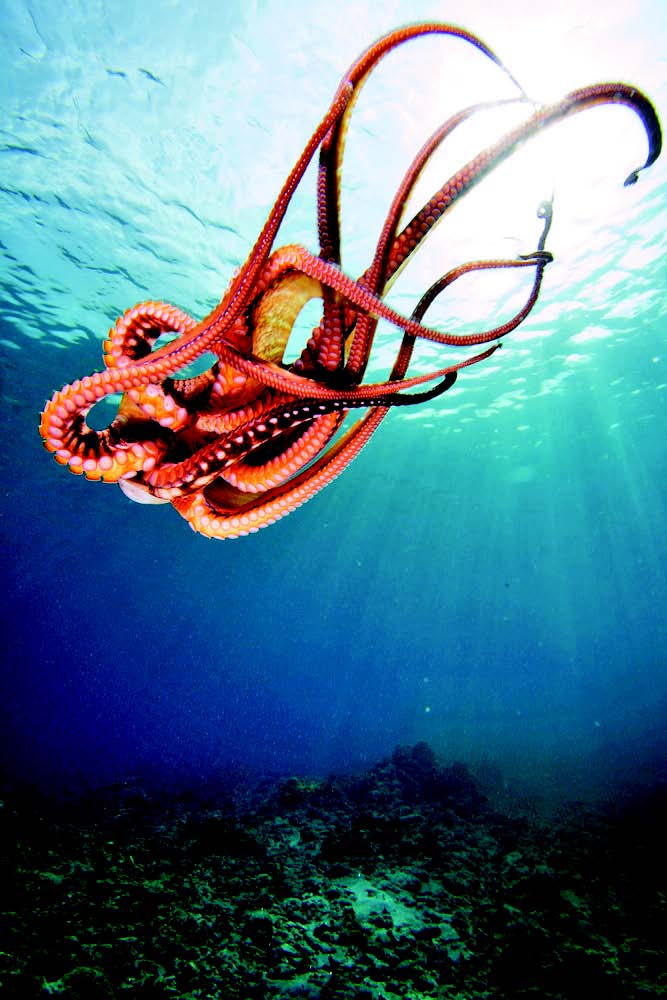For as long as humanity could write about its own history, it has been practically a given that we have considered ourselves the top of the literal and figurative food chain on the planet. And why shouldn’t we be? We are practically the only ones who have built a civilization that has terraformed the planet, and we have a system of communication – language – that we have used to send out signals even to outer space. And let’s not even get into the concept of self-awareness.
However, that’s also the biggest flaw in our argument: We measure our own achievements. Of course, there’s going to be an issue with that.
Smart or intelligent?
And so I started to do research on the question of human superiority within the animal kingdom. Now, I smugly thought, this action alone, the ability to research, should be proof enough that we are superior.

But the nuance of the words nagged at me: Are we smart, intelligent, or both? Intelligence means that we can learn and acquire knowledge, but being smart is more of how we can use what we’ve learned and apply it to situations where said knowledge would be useful.
I can tell you, that gave me an uncomfortable feeling right there.
Smart or well-adapted?
One interesting man I came across in my readings was Dr. Arthur Saniotis, who was an expert in both anthropology and the medical sciences. He posited that humanity has been kidding itself about being the smartest in the animal kingdom. While we are certainly different, we’re horribly outclassed by animals in many other ways.
He traced back the idea of human superiority back to the development of agriculture, saying that progressive notions of animals being superior to man were essentially scaled back as humanity moved towards the industrial revolution.
This isn’t to say that the good doctor was the only man who was concluding that man wasn’t all he was hyped to be.
My research led me to an article in the Psychology Today website by Nigel Barber, PhD, titled When Other Species are Smarter. From what I gathered in the article, we humans weren’t as hot as we thought we were when it came to our natural abilities. For example:
1. Chimpanzees apparently are much better than humans when it comes to tasks that require spatial memory.
2. Some birds hide their winter food stores in hundreds of locations – and they can remember the majority of them with no problem. The same goes for a type of wasp that remembers where all the larvae are hidden, then brings food of the proper type and quantity for each larva.
3. Crows and magpies, even if they have relatively smaller brains than chimpanzees, have the same level of problem-solving capability.
4. Again, about magpies: They recognize themselves in mirrors, indicating that they are, on some level, self-aware. The same goes for whales, dolphins, and apes with larger brains.
As it turns out, many animals have specific aspects where humans can barely compete. For example, while we do have a very distinct and complex language, we only use a very narrow audible range for using it. Even our eyesight isn’t that good, limited and highly detailed it may be. And let’s not even get into the sense of smell, or the ability to sense electrical fields that animals generate.When it comes to many ways to communicate or sense things in our surroundings, we are woefully on the low end of the scale.
Social networking
Humans, however, are very talented in making sure that information is passed on. Even before we had written language, human societies had people whose sole task was to pass on knowledge from one generation to the next.
As stated, humans are very intelligent – we certainly learn quickly and we even find ways to make sure that our knowledge will be spread to the whole community and to future community members.
Manipulation
Humanity is also superior in the sense that people are tool users. It’s not just the fact that we’ve evolved opposable thumbs to grip tools. It’s the whole analytical and problem-solving process (remember our Chimpanzee cousins?).
Combined with our ability to pass on information socially, what we have is a universal memory, an archive of solutions and the results of those solutions, which we pass on from one generation to the next. We built our whole civilization on this.
From the very moment we have learned that a thrown rock can be a useful projectile weapon, we have slowly built solution upon solution to all the problems we encounter.
But…are we the smartest?
All my readings took me back to the original question: Are humans the smartest animals on the planet?
I have to say, humans are probably the most intelligent. Yes, chimpanzees, dolphins, and whales may have more complex social group formations, and they may think in levels that humans can only begin to understand. It’s also true that many animals probably have ways of communicating that would leave ours in the dust, in terms of volume and nuances. But humans parse information in ways that make it easy to be put into a record.
Humans have created methods of communication that make information easy to store and absorb.
But does it make us the smartest?
The answer is…. Probably not.
Man as an apex virus
The concept of humanity as a plague in the biosphere is not a new idea for some people, though the pop culture reference arguably goes to The Matrix trilogy, where Agent Smith argued that the very way that humanity acts is similar to a virus, destroying the host organism.
It looks as if humanity may be intelligent enough to discover technology that can bring them to the stars. Unfortunately, given our current issues with the environment and how our interspecies conflicts are escalating, it may be the very lack of objective “smarts” on how to use technology in a practical manner that will be humanity’s downfall.
And even then, our love for centering our viewpoints on ourselves shows.
The end of the world is when humanity disappears from the Earth due to their own problems.
The truth is, the world will eventually recover if we do blast or pollute ourselves to bits. Animals will recover and, after some time, one of the other species will replace our niche in the system.
One can only hope that that species will be both intelligent and smart.
Smart fellow earthlings
Here are some of the more intelligent animals we share this planet with who haven’t yet been mentioned in this article.
1. Elephants – These lovable giants have the largest brains among land animals. They’re also self-aware. When it comes to their communication skills, they use their trunks and feet to generate seismic vibrations or ultra-low frequency vibrations that carry far and wide in the savannah.

2. Rats – Our furry friends with a bad reputation can make choices based on what they do know – and what they don’t. They are also self-aware and are capable of dreaming. They also learn their names.

3. Dogs – Dogs have integrated with our society to the point where we consider many of them as members of the family. We judge dog intelligence based on how fast they learn commands and whether or not they can repeat the actions required.All dog owners will add that they have distinct personalities and can show surprising complexity in their thought patterns.

4. Pigs – They have excellent long-term memories, can solve mazes, and can understand a simplified language. It’s about time we fast-track the use of lab-grown meat – because why the heck are we eating obviously intelligent animals? Amen to that. Can I also add that we should stop eating animals, not only because they are capable of intelligent thought, but also because they are capable of suffering. -Ed.

5. Pigeons – Believe it or not, pigeons can understand mathematical concepts. They can also somehow recognize people’s faces.

6. Octopuses – Finally, the list would not be complete without the venerable octopus. They have the largest brains among invertebrates, and their neurons are spread all across their body.

You might want to read:
– Save animals, don’t harm endangered species fleeing from Taal Volcano – DENR
– Horses, farm animals rescued from Taal Volcano island
– Calling volunteers: More people needed to rescue animals in Taal-affected areas




